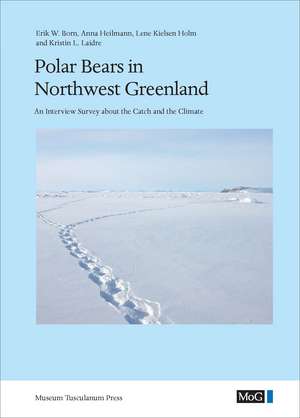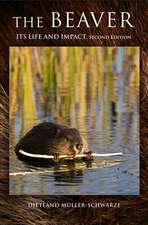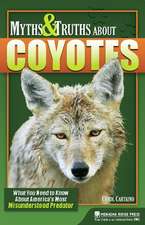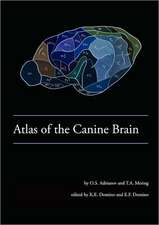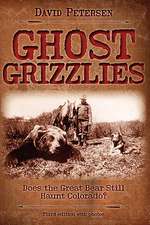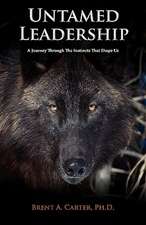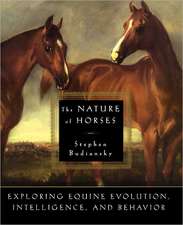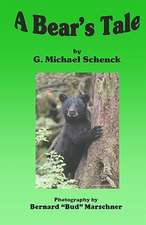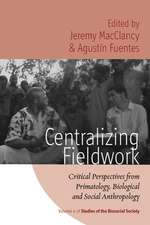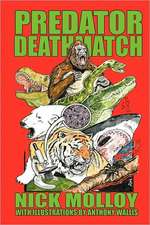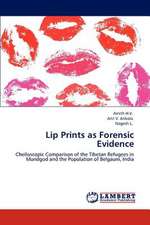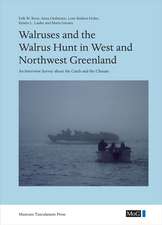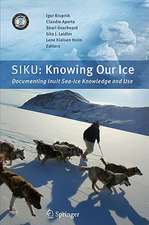Polar Bears in Northwest Greenland: An Interview Survey about the Catch and the Climate
Autor Erik W. Born, Anna Heilmann, Lene Kielsen Holm, Kristin L. Laidreen Limba Engleză Hardback – 8 dec 2011
This volume presents the results of an interview survey on the catch of polar bears in Northwest Greenland between 1952 and 2005. The results are based on detailed descriptions of 588 subsistence catches by Inuit polar bear hunters. The rationale for this study was the indication from hunting statistics suggesting that the catch of polar bears in Northwest Greenland had increased since the early 1990s. This change occurred simultaneously with marked changes in weather conditions and sea ice cover in Northwest Greenland. The information provided by seventy-two experienced polar bear hunters living in the Qaanaaq and Upernavik areas offers a detailed and unique account of polar bear catch, polar bear biology, climate change, and the effect of these changes on both the species and the subsistence hunt.
Preț: 359.02 lei
Preț vechi: 390.10 lei
-8% Nou
Puncte Express: 539
Preț estimativ în valută:
68.71€ • 71.47$ • 56.72£
68.71€ • 71.47$ • 56.72£
Carte disponibilă
Livrare economică 24 martie-07 aprilie
Preluare comenzi: 021 569.72.76
Specificații
ISBN-13: 9788763531689
ISBN-10: 8763531682
Pagini: 232
Ilustrații: colour maps, photos & tables
Dimensiuni: 203 x 279 x 20 mm
Greutate: 0.67 kg
Editura: Museum Tusculanum Press
Colecția Museum Tusculanum Press
ISBN-10: 8763531682
Pagini: 232
Ilustrații: colour maps, photos & tables
Dimensiuni: 203 x 279 x 20 mm
Greutate: 0.67 kg
Editura: Museum Tusculanum Press
Colecția Museum Tusculanum Press
Notă biografică
Erik W. Born is senior scientist at the Greenland Institute of Natural Resources, Nuuk. Anna Heilmann is an independent consultant for the Greenland Institute of Natural Resources, Nuuk. Lene Kielsen Holm is director for Research and Sustainable Development, Inuit Circumpolar Council, Nuuk. Kristin L. Laidre is scientist at the Polar Science Center, University of Washington, Seattle, and at the Greenland Institute of Natural Resources, Nuuk.
Cuprins
Acknowledgements
Abstract
Introduction
Materials, methods and background
Preparation and selection of informants
Travel activity
The form and content of the interviews
Analysis of the data
Hunting areas
Time periods
Terminology and statistical analyses
Background
Physical factors
Hunting regulations and other factors that limit the hunt
Changes to the temperature and the sea ice cover
Results
The interviewees
The Qaanaaq municipality
The Upernavik municipality
Responses to the questions
The Qaanaaq municipality
Hunting and travelling conditions
Occurrence of polar bears and dens
Climate change
Changes to the catch and occurrence of polar bears
The biology and behaviour of the bears
The Upernavik municipality
Area 3 (Kullorsuaq and Nuussuaq)
Hunting and travelling conditions
Occurrence of polar bears and dens
Climate change
Changes to the catch and occurrence of polar bears
The biology and behaviour of polar bears
Area 4 (The area from the south of Nuussuaq to Upernavik town)
Hunting and travelling conditions
Occurrence of polar bears and dens
Climate change
Changes to the catch and occurrence of polar bears
The biology and behaviour of polar bears
The catch in figures
Qaanaaq municipality
Upernavik municipality
Discussion
The interview survey as a method
Changes to the physical environment
Climate change and polar bears
Changes in distribution of polar bears
Changes in physical condition of polar bears
Changes in diet of polar bears
The catch in figures
Seasonal distribution of the catch
Changes in hunting methods
Geographic distribution
Age and sex distribution
Dens and “newborn” cubs
Overall conclusion
References
Appendix
Abstract
Introduction
Materials, methods and background
Preparation and selection of informants
Travel activity
The form and content of the interviews
Analysis of the data
Hunting areas
Time periods
Terminology and statistical analyses
Background
Physical factors
Hunting regulations and other factors that limit the hunt
Changes to the temperature and the sea ice cover
Results
The interviewees
The Qaanaaq municipality
The Upernavik municipality
Responses to the questions
The Qaanaaq municipality
Hunting and travelling conditions
Occurrence of polar bears and dens
Climate change
Changes to the catch and occurrence of polar bears
The biology and behaviour of the bears
The Upernavik municipality
Area 3 (Kullorsuaq and Nuussuaq)
Hunting and travelling conditions
Occurrence of polar bears and dens
Climate change
Changes to the catch and occurrence of polar bears
The biology and behaviour of polar bears
Area 4 (The area from the south of Nuussuaq to Upernavik town)
Hunting and travelling conditions
Occurrence of polar bears and dens
Climate change
Changes to the catch and occurrence of polar bears
The biology and behaviour of polar bears
The catch in figures
Qaanaaq municipality
Upernavik municipality
Discussion
The interview survey as a method
Changes to the physical environment
Climate change and polar bears
Changes in distribution of polar bears
Changes in physical condition of polar bears
Changes in diet of polar bears
The catch in figures
Seasonal distribution of the catch
Changes in hunting methods
Geographic distribution
Age and sex distribution
Dens and “newborn” cubs
Overall conclusion
References
Appendix
